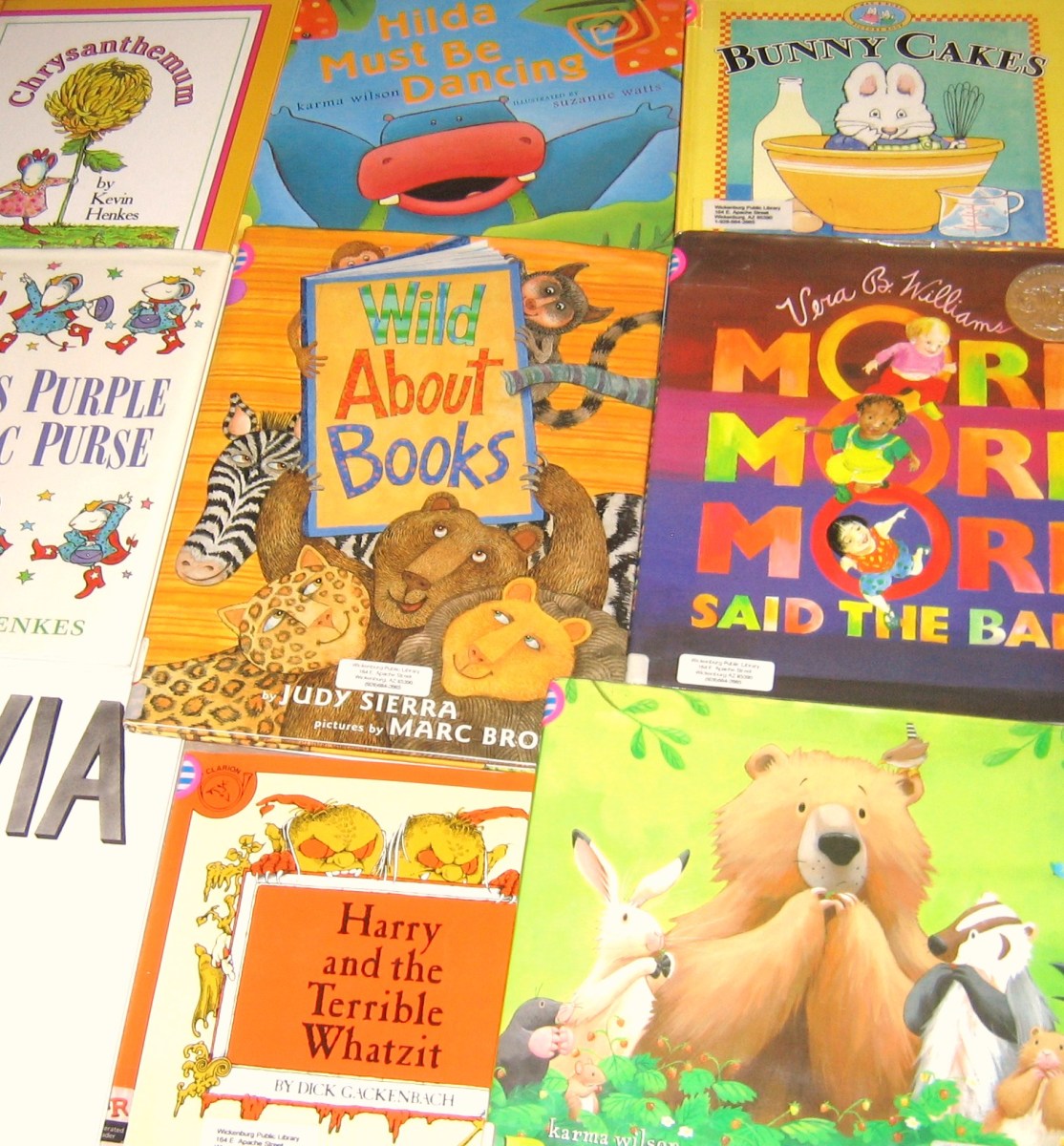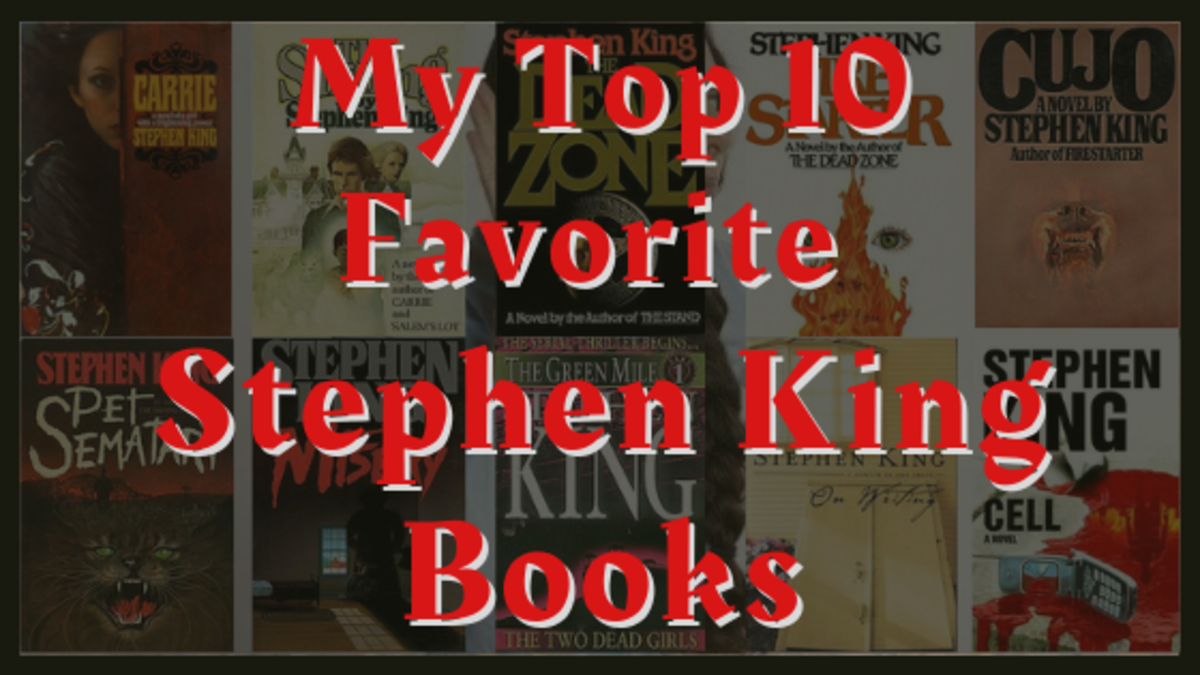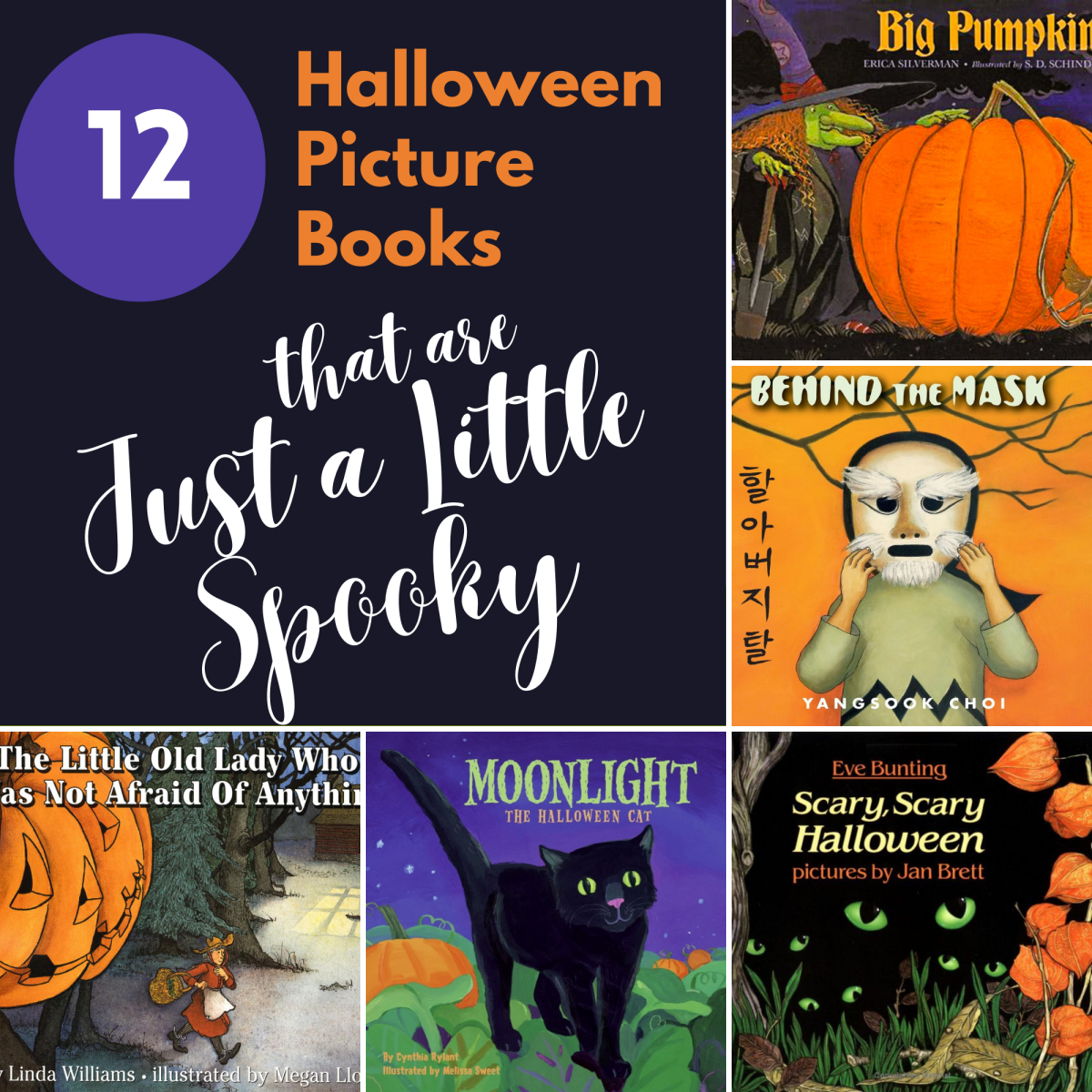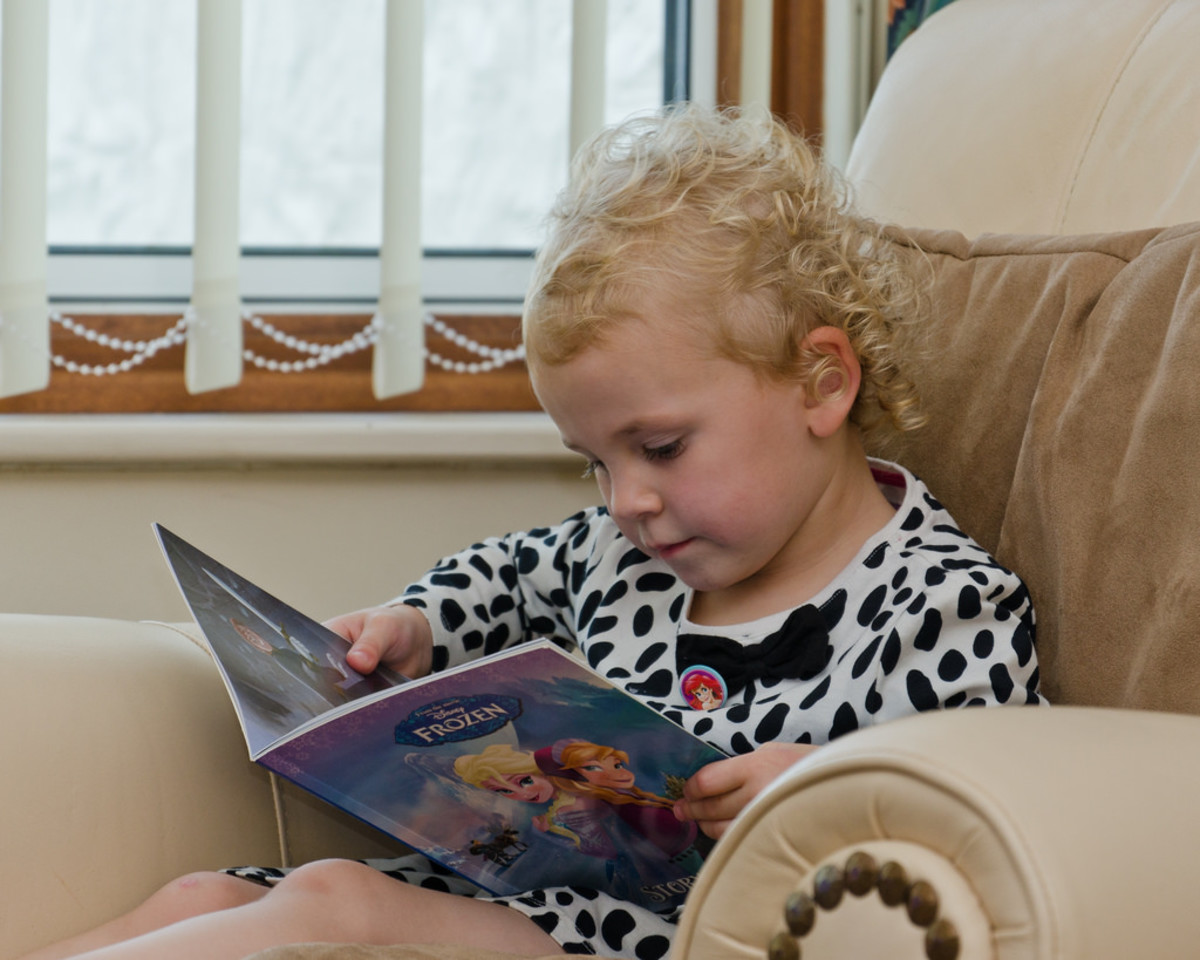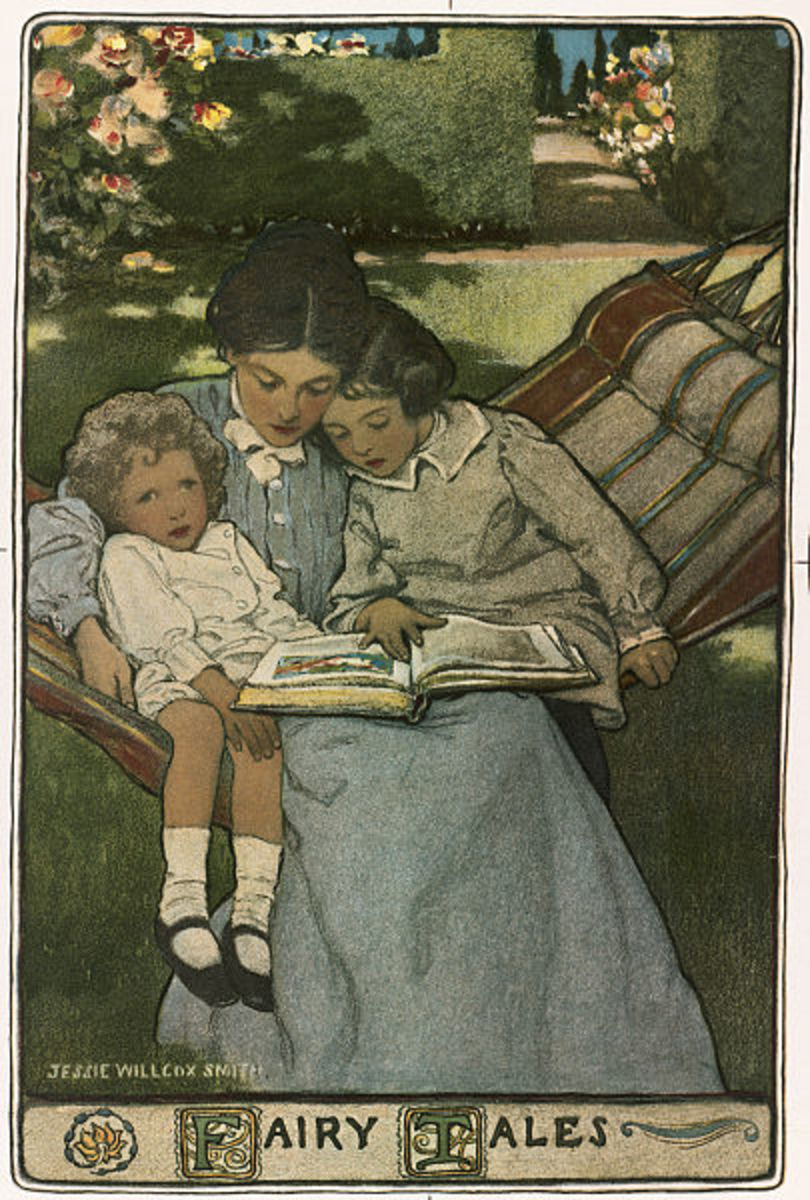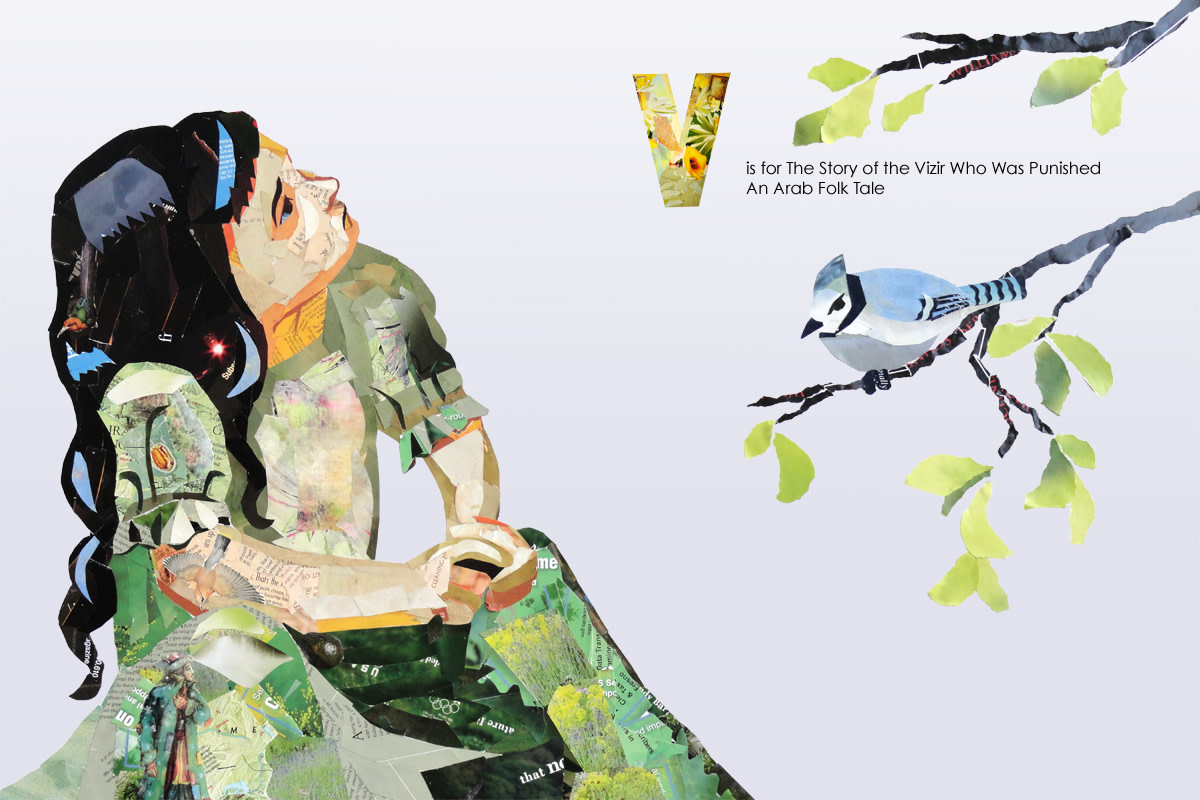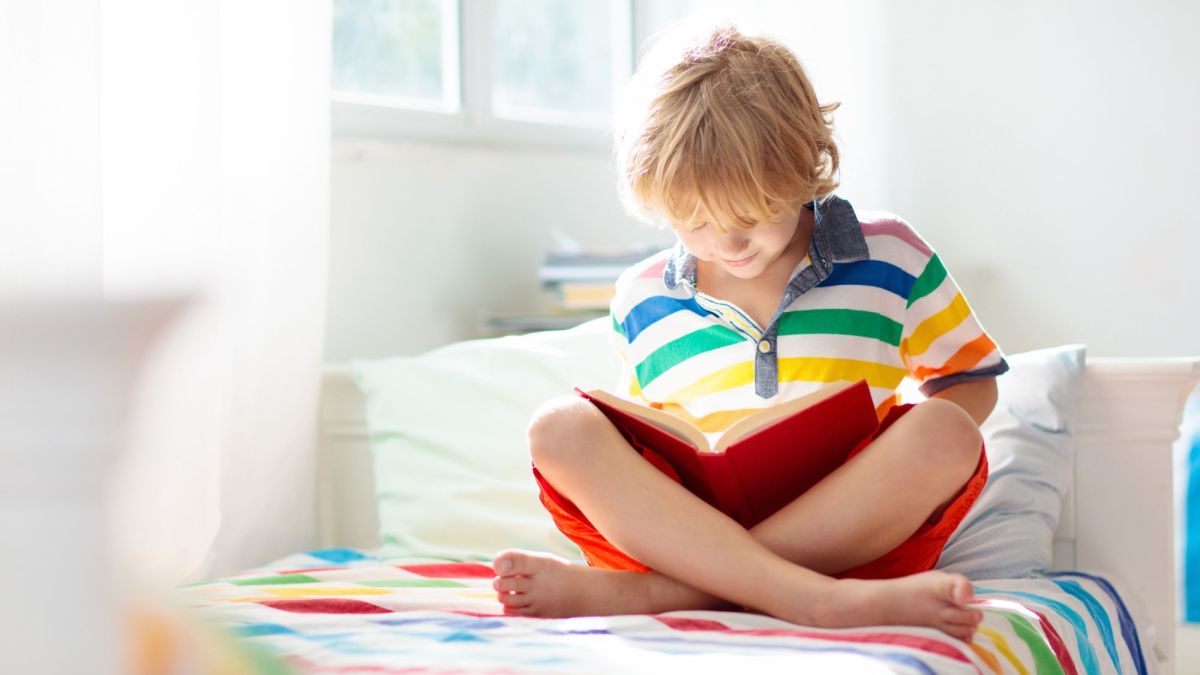Choosing a Just Right Leveled Book: How to Help Your Child or Student Make the Right Choice
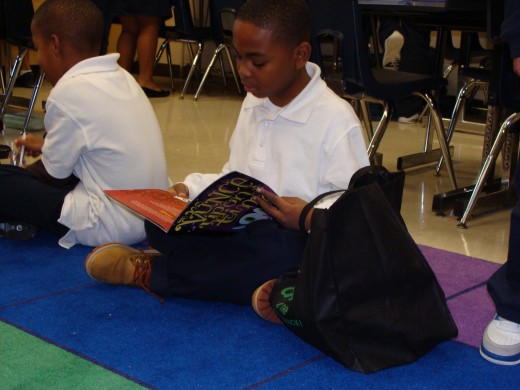
The Love of Books
I have a great love of books. My affair with the written word has been in existence for as long as I can remember, although it has grown stronger over the years. During my summers visiting my father I would pack two suitcases. One full of clothes and the other with books. I never understood how someone could not enjoy reading. For me it was a way to escape, travel,and meet new friends. How could someone not love to read?
It wasn't until I became a teacher that I began to understand how some people could dislike reading, although I was sure that I could "fix" that. In fact my own father was a "functional illiterate" adult. He was able to get through his daily routine without really needing to read anything. Unfortunately there are many people like him in the world. I didn't realize all of the learning challenges that some people face and that for some people, words look like a puzzle. Unfortunately they do not have a picture of what it should look like in the end. So my job became helping students unlock that puzzle and start to learn how to create that picture. I was on a mission to help every child learn to love books as I did.
Organizing and Selecting Books
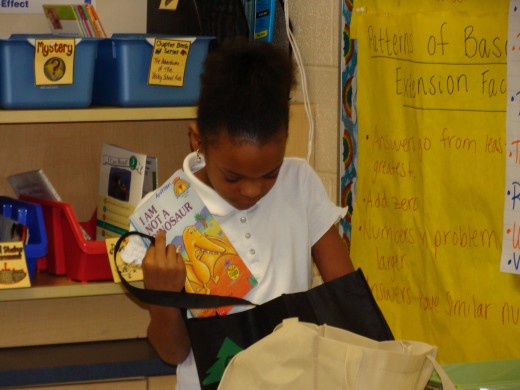
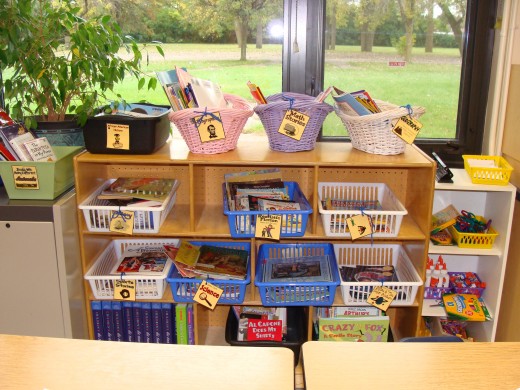
Readers Workshop
So when my school district proposed that teachers use a new method of teaching reading called readers workshop my first thought was tell me what it is and how I can include it. I was willing to do anything that I needed to get kids to love books. When I found out that it would include a classroom library of about 1000 books at a variety of levels and children would be reading these instead of a traditional reading book, I asked "Where do I sign up?" One of my complaints had always been that kids don't enjoy reading because they don't read "real" books. This solved that problem. Our task was to set up our classrooms with reading areas and baskets and bins of books that were grouped both by level and genre. In other words, we were making reading authentic for children. Each week my students "shop" for books at their level that they will read for the week. The meet with partners and groups to have guided conversations about their books and they spend more time reading for themselves than they ever have before. As we spent that first year getting to know and love readers workshop, I received one of the best compliments to date in my teaching career. One of my students asked me if I knew why she loved my class so much? When I told her no, she said, "because it is just like Border's Bookstore." Of course I was elated. So what does all of this have to do with choosing a just right book? Well if a child has a book in hand that is one that is best suited for him or her, the success rate increases greatly.
What are Leveled Books?
Most schools and classrooms today use some sort of leveling system to help guide kids to the correct book for them. There are several systems of leveling but the most common are DRA leveling and Guided Reading Levels. DRA leveling gives each student a number based on his or her reading ability. This reading assessment is based on several factors which include the rate at which the child reads and the ability for that child to comprehend the story. Once the assessment is done the teacher scores the test and gives the child his or her "level." Many of the books in the classroom and school library will be coded with the "level" of the book. When the level of the book matches the level of the student, that book is "just right" for him. In our school we use the DRA method to test students but then convert the number to a letter which is a little easier for kids and parents to remember. This letter is what students look for in labeled book bins and books to make sure that the book is just right for them. This is not an exact science and some level E books for example may be a little easier or more difficult than others. This can depend upon the publisher and the method that a teacher may use to assign a level for that book. On Scholastic's website, www.scholastic.com, there is a tab that is labeled book wizard. If you type in a title of a book it will give you the level that the book is written at. Not all books are in this system, but it is a quick and easy way to check if that book is a good match for your child.
Why a Just Right Book?
When teachers speak of "just right books" we are referring to books that students are able to read and understand easily and without much frustration. Often parents mean well when they suggest a book for their child but they may be doing more harm than good. For example, a parent may remember reading a book like Ramona and Beezus when in fact that book may be too difficult for that child to read. Why is that so harmful? Because it causes a lot of frustration on the part of the child because they are spending so much time figuring out the words that they cannot understand the story and lose track of the characters and events. They walk away from the book having experience no magic or joy from the plot of the story. If a child is reading a book at an independent level, it means that he will need little to no help from you as the parent. The repetition and familiarity of the words and storyline will help to build strength and confidence in your reader. So then how do you know what book is right for your child, especially if there is no level coded in the book?
Three Tips to Choosing the Right Book
Unfortunately, libraries and bookstores don't level their books. Here is a guide to help you make an informed decision.
- The Rule of Five: One way to be sure that the book is right for your child is to have her read the first page. If she misses five or more words then the book is too hard. Try something that is a little easier.
- Goldie Locks and the Three Bears: For younger kids we relate choosing a book to the common story of Goldie Locks and the Three Bears. As you flip through the pages, if there are just a few words on the pages and they are easy words for you, then the book is too easy. If there are lots of words on the pages and maybe divided into longer chapters, then the book is too hard. If there are a mix of pictures and words that are longer sentences and the words are several sentences on a page then the book is just right.
- Following a Series: Once you know what level a particular book series is, for example Magic Tree House Books, they usually are all written at the same level. So if your child finds that he or she really enjoys a particular group of books, then stick with it! The idea is to have the most amount of time spent reading as possible at their particular level.
Most of all make reading a pleasant time in your classroom or home. Set the example for your child by reading while they do. Make it a special time that you spend together. Hopefully these ideas will help you to make your child or students build their confidence and ultimately create success and joy in their reading lives.


